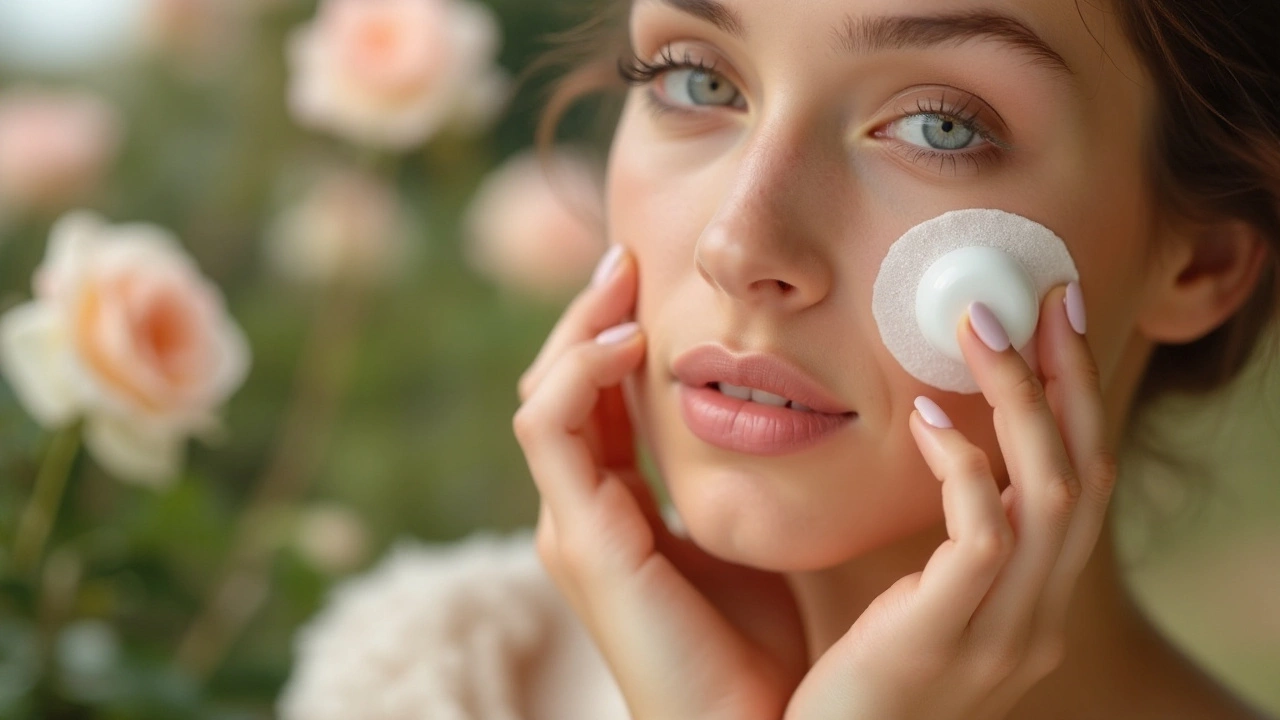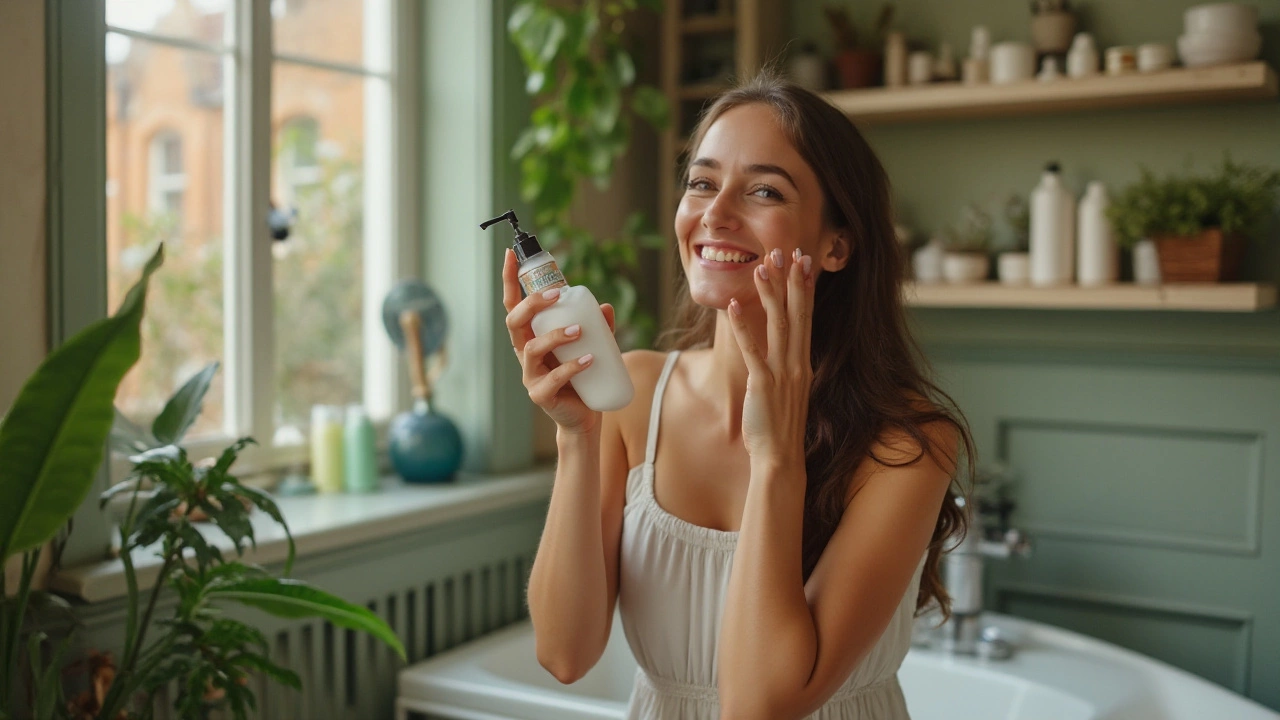A refreshed face can give you the confidence you need to tackle your day, and having a reliable skincare routine is key to achieving that. But with so many products lining the aisles, it can feel daunting to choose the right ones and understand their use. Your skin is unique, and tending to it thoughtfully is essential.
A daily skincare routine starts with smart cleansing. This helps in removing dirt and any impurities left over from the hustle and bustle of the day. Toning comes next, helping your skin regain balance and prepare for the nourishment that follows. Don't forget to moisturize, as it locks in hydration, keeping your skin soft and plump.
Beyond these steps, protecting your skin from the sun and environmental stressors is crucial. They can be the invisible foes wreaking havoc on your skin's surface, accelerating signs of aging. Personalized care is the last piece of the puzzle, as knowing what works for your skin type will guide you toward choosing the right regimen.
Cleansing Wisely
Starting a routine with a well-chosen cleanser sets the stage for healthy skin. It's crucial to choose a cleanser that aligns with your skin type, whether it be dry, oily, or combination. This step is vital because the wrong product can strip your skin of its natural oils or leave it coated with unwanted residue, leading to breakouts or dryness. When cleansing, water temperature plays a key role. Lukewarm water is optimal, as hot water can irritate and cold water may not dissolve buildup effectively. Gently massaging the face in circular motions with your face care cleanser can improve circulation, enhancing your skin’s natural glow. The process of removing makeup at this stage is just as critical. Makeup remnants can clog pores, preventing the skin from repairing overnight. Consider using a two-step cleanse if you regularly wear heavy makeup or sunscreen.
The frequency of cleansing matters too. Dermatologists often advocate for a twice-daily cleansing routine, once in the morning to clear away evening buildup, and once at night to remove impurities accumulated throughout the day. However, those with particularly sensitive or dry skin might find once-a-day cleansing to be the sweet spot. An interesting fact worth noting is that over-cleansing can lead to an imbalance in the skin’s pH level, causing it to produce more oil to compensate, thereby triggering breakouts. Dr. Mona Gohara, a board-certified dermatologist, advises, "Think of cleansing as the foundation of your skin care home—if the foundation is not set correctly, whatever you put on top won’t work as effectively."
Diving deeper, we come to the types of cleansers available. Gel cleansers are typically suited for oily and acne-prone skin due to their deep-cleaning properties, while cream cleansers are known for their moisturizing abilities, making them ideal for dry skin. There are also foaming cleansers, which offer a rich lather and are effective for combination skin types. Ingredients matter; look for products free of sulfates and harsh chemicals, as they can damage the skin's delicate barrier. Opt for formulations with glycerin or hyaluronic acid to help maintain skin moisture levels. If eco-friendliness is a priority, exploring cleansers with biodegradable packaging or cruelty-free labels can align skincare with personal values without compromising efficacy.

Toning the Skin
Toning is often considered the underdog in the face care routine, yet its benefits are immeasurable. Hidden amidst the glamor of creams and serums, the humble toner plays a crucial role in bridging the cleansing and moisturizing steps. It essentially preps your skin by removing any residual impurities that the cleanser might miss, while also adjusting the pH levels, which facilitates better absorption of subsequent skincare products.
Choosing the right toner depends largely on your skin type. For those with oily skin, a toner that contains ingredients like salicylic acid can aid in cutting down excess oil and preventing blemishes. Meanwhile, those with dry or sensitive skin should lean towards gentle toners, preferably alcohol-free and enriched with soothing ingredients like chamomile or aloe vera, that won't strip the skin of its natural moisture. It’s akin to finding that perfect pair of jeans—it should fit just right, offering balance without irritation.
Historically, toners were seen as harsh, astringent products designed primarily for oil control. However, contemporary formulations have evolved significantly. Modern toners can hydrate, revitalize, and even offer anti-aging benefits. It's not merely about getting rid of stubborn leftover makeup anymore. For example, rosewater toners have skyrocketed in popularity due to their gentle feel and hydrating properties, providing a refreshing lift to the skin throughout the day.
How to Apply Toner
Correct application is key to maximizing the benefits of your toner. Start by cleansing your face thoroughly, then pour the toner onto a cotton pad or directly into your hands. Gently pat the product over your face and neck, avoiding the delicate eye area. This method is both soothing and effective, ensuring that every nook and cranny receives attention. For an added boost, some like to keep a spray bottle of toner for a quick mist during the day, especially in dry or air-conditioned environments.
Marie Jhin, a board-certified dermatologist, suggests, "Toners are an essential step in most skincare routines, particularly for those with oily or acne-prone skin. They not only clean the skin further but help control issues at the core."
“Incorporating toner aids in minimizing pores, balancing skin pH, and provides a base layer of hydration. This balance is fundamental for healthy, radiant skin.” – Dr. Marie Jhin
The following table shows data from a recent survey on toner usage preferences:
| Skin Type | Preferred Toner Ingredients |
|---|---|
| Oily | Salicylic Acid, Witch Hazel |
| Dry | Aloe Vera, Hyaluronic Acid |
| Combination | Glycolic Acid, Rosewater |
Integrating toner into your daily routine undoubtedly enhances the effectiveness of your entire skincare regimen. By selecting a product tailor-made to address specific skin concerns, one can witness improvements not just in texture and clarity but in the overall health of the skin. Remember, consistency is crucial, and while immediate results are rare, over time, the benefits become evident, leaving you with healthier and more balanced skin.

Moisturizing Effectively
Moisturizing plays a crucial role in any skincare routine, acting as the protective shield your skin needs to maintain its resilience and glow. Its main goal is to hydrate the skin by creating a barrier that locks in moisture and keeps environmental aggressors at bay. But let's dig a little deeper into the benefits and execution of effective moisturizing. Choosing the right moisturizer is all about understanding what your skin craves. If your skin often feels parched and tight, it's screaming for a rich, cream-based moisturizer packed with hyaluronic acid or glycerin, which are excellent humectants that attract water into the skin. On the other hand, if you battle oily or acne-prone skin, lighter, gel-based options that include ingredients like niacinamide and salicylic acid may suit you better.
Knowing when and how to apply moisturizer can also transform the results you see in the mirror. It's best to slather on your moisturizer when your face is still slightly damp after cleansing, as this helps lock in the hydration and enhance absorption. Consider it a three-minute window where your skin is most receptive to hydration. Your nighttime routine should include moisturizing, as that’s when your skin engages in repair mode, and having a nourishing shield works wonders in aiding its recovery. But it's not just about face moisturizer; eye creams specifically designed to handle the delicate area around your eyes are crucial in your routine to combat fine lines.
"Daily moisturizing is vital for healthy skin, but some are better at it than others. Moisturizers should be chosen based on individual skin types and needs," says Dr. Howard Murad, a renowned dermatologist and founder of Murad Skincare.
Face care isn’t complete without regular exfoliation in tandem with moisturizing. Exfoliating ensures dead skin cells are removed, allowing your moisturizer to penetrate deeper into your skin, providing better hydration. Aim to exfoliate gently once or twice a week depending on your skin’s tolerance, using methods like chemical exfoliants containing lactic or glycolic acid for a more refined look. A critical point often overlooked is the importance of sunscreen in conjunction with moisturizers. When exposing your skin to the sun after applying a moisturizer, make sure to use a broad-spectrum SPF to shield against harmful UV rays.
Those living in areas with harsh winters or high-altitude climates might benefit from moisturizers fortified with ceramides and shea butter, which can cater to the extra barrier needed against windburn and dry air. The truth is, mastering the art of moisturizing effectively marries intuition with a dash of experimentation. As your skin evolves and seasons change, so should your moisturizing habits, making this a dynamic rather than static aspect of your daily face care.

Protecting Against Harmful Factors
Our skin endures a lot daily. From harsh UV rays to urban pollution, various elements can take a toll on its health and appearance. One of the cornerstone steps in any effective skincare routine is applying sunscreen. This simple yet powerful step can make a world of difference. Not only does it shield your skin from the harmful effects of the sun, but it also aids in preventing premature aging and reducing the risk of skin cancer. According to a study in the New England Journal of Medicine, individuals who regularly applied sunscreen showed significantly less skin aging after four and a half years compared to those who did not.
Besides sun protection, it's crucial to consider the impact of environmental pollution. Dust and smog aren't just nuisances; they're skin enemies. Particulate matter can penetrate the skin, leading to inflammation and increasing oxidative stress, which accelerates aging. Including antioxidants in your routine is an effective strategy. Ingredients like Vitamin C and E, often found in serums, help neutralize these harmful particles. They work as a defense mechanism, replenishing your skin's natural barrier and promoting a fresher appearance.
Another often overlooked factor is indoor air quality. Many of us focus on external pollutants, but what about the air inside our homes? From heating devices to household cleaners, these can all affect your skin. To combat this, consider using air purifiers and incorporating humidifiers, especially during the drier months. Maintaining a consistent moisture level in your home can prevent your skin from becoming dried out, a common issue that can compromise the skin barrier.
Diet and hydration play crucial roles in skin protection as well. By maintaining a healthy diet rich in essential nutrients and staying hydrated, you're ensuring your skin is receiving the internal support it needs. Omega-3 fatty acids, found in fish and nuts, contribute to maintaining the elasticity and suppleness of your skin. Drinking plenty of water flushes out toxins, helping maintain that radiant glow. Lastly, don't underestimate the power of adequate sleep. Rest allows your body to repair itself, which inevitably leads to healthier skin.
In implementing these strategies, personalized care should be prioritized, recognizing that everyone's skin is unique. What works for one might not suit another, so it's vital to pay attention to your skin's specific needs. Tailoring protective measures to your skin type can optimize the effects, helping you achieve and maintain glowing, healthy skin day in and day out.





